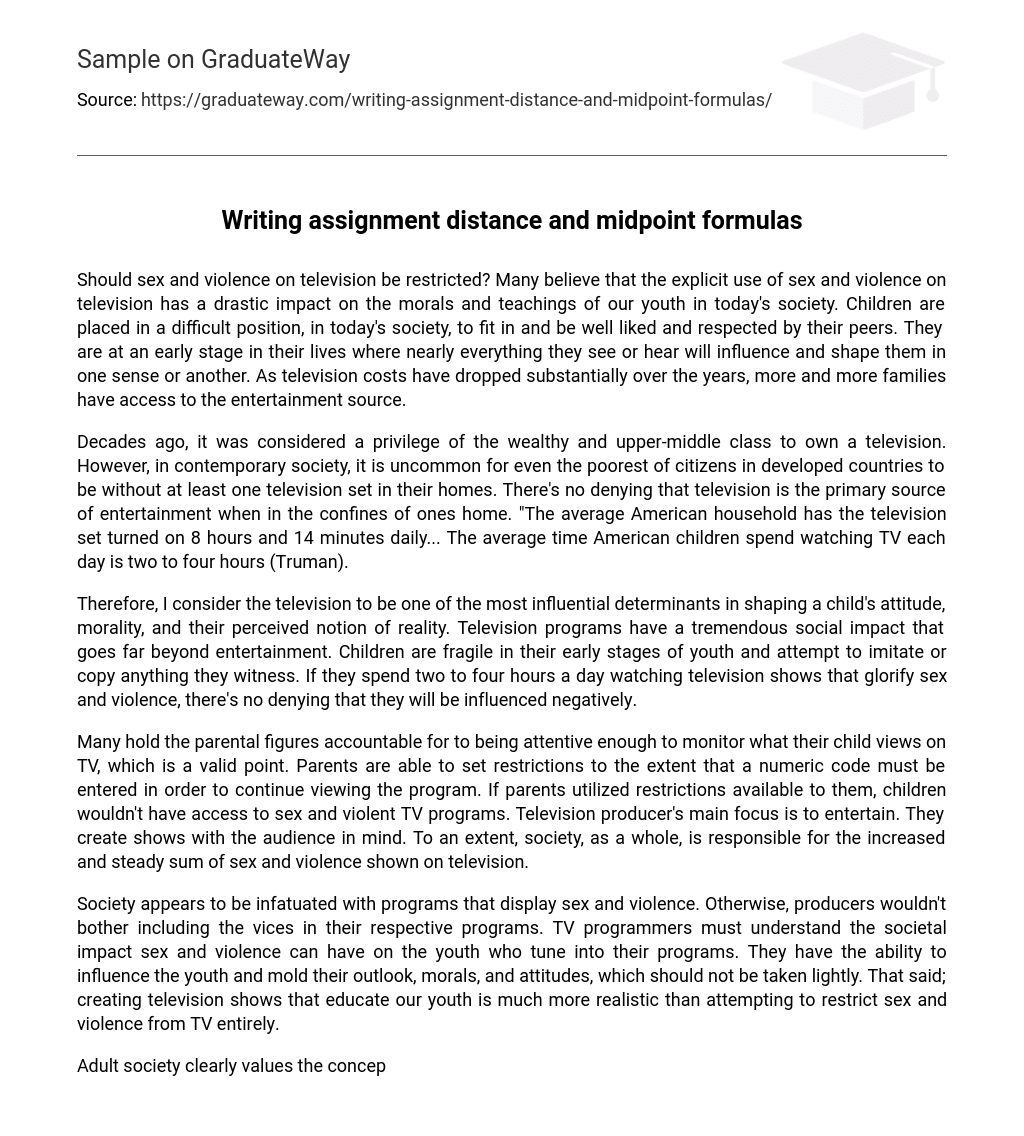Should sex and violence on television be restricted? Many believe that the explicit use of sex and violence on television has a drastic impact on the morals and teachings of our youth in today’s society. Children are placed in a difficult position, in today’s society, to fit in and be well liked and respected by their peers. They are at an early stage in their lives where nearly everything they see or hear will influence and shape them in one sense or another. As television costs have dropped substantially over the years, more and more families have access to the entertainment source.
Decades ago, it was considered a privilege of the wealthy and upper-middle class to own a television. However, in contemporary society, it is uncommon for even the poorest of citizens in developed countries to be without at least one television set in their homes. There’s no denying that television is the primary source of entertainment when in the confines of ones home. “The average American household has the television set turned on 8 hours and 14 minutes daily… The average time American children spend watching TV each day is two to four hours (Truman).
Therefore, I consider the television to be one of the most influential determinants in shaping a child’s attitude, morality, and their perceived notion of reality. Television programs have a tremendous social impact that goes far beyond entertainment. Children are fragile in their early stages of youth and attempt to imitate or copy anything they witness. If they spend two to four hours a day watching television shows that glorify sex and violence, there’s no denying that they will be influenced negatively.
Many hold the parental figures accountable for to being attentive enough to monitor what their child views on TV, which is a valid point. Parents are able to set restrictions to the extent that a numeric code must be entered in order to continue viewing the program. If parents utilized restrictions available to them, children wouldn’t have access to sex and violent TV programs. Television producer’s main focus is to entertain. They create shows with the audience in mind. To an extent, society, as a whole, is responsible for the increased and steady sum of sex and violence shown on television.
Society appears to be infatuated with programs that display sex and violence. Otherwise, producers wouldn’t bother including the vices in their respective programs. TV programmers must understand the societal impact sex and violence can have on the youth who tune into their programs. They have the ability to influence the youth and mold their outlook, morals, and attitudes, which should not be taken lightly. That said; creating television shows that educate our youth is much more realistic than attempting to restrict sex and violence from TV entirely.
Adult society clearly values the concepts of sex and violence, for whatever the reason may be, which is why the two are common themes on TV. If society didn’t value sex and violence within entertainment, TV producers wouldn’t include the two, to the extent that they do, within their programs. Parents are ultimately responsible for what there children have access to in the confines of their home. Parents are able to restrict and prevent children from watching shows that include sex and violence. Thus, it’s unrealistic to expect sex and violence to be entirely restricted when society clearly values the two for their entertainment purposes.
Moreover, parents are accountable for what their child views on TV. However, TV producers have a moral responsibility to ensure that shows, intended for children, influence the youth in a positive manner and don’t compromise the teachings of parental figures in their lives.





